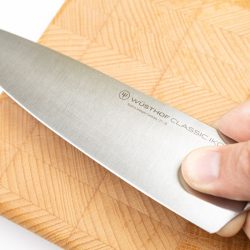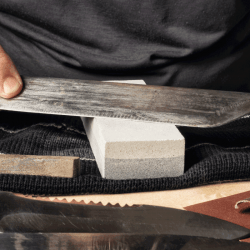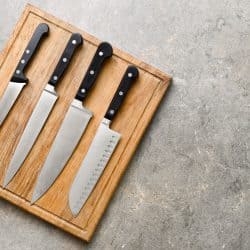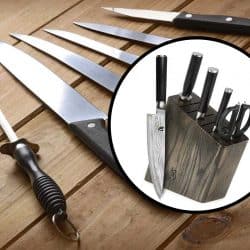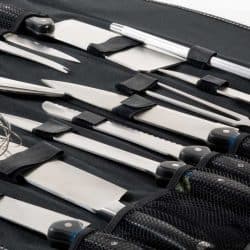Figuring out what the problem is with your favorite kitchen utensils can be frustrating. For example, do you have Wusthof knives and notice rust forming on the blade? Are these knives supposed to be corrosion-resistant? How do you keep kitchen knives from rusting?
Luckily, we've done plenty of research into this topic and have the answers below!
Although Wusthof uses fairly rust-proof stainless steel to make their knives, that doesn't always prevent this from happening. Unfortunately, you can't always keep rust from forming on your Wusthof products, especially if you aren't storing them properly.
Many experts suggest that higher carbon contents in Wusthof knives can be to blame for more persistent rusting, although if you keep them dry/stored correctly, that should not happen.
As we start this article, we will cover all things Wusthof knives and discuss whether or not they'll rust. If you're new to this brand, notice all your knives rusting, or have additional questions about the brand, we're here to help. With that said, let's dive right into this post!
Do Wusthof Knives Rust?
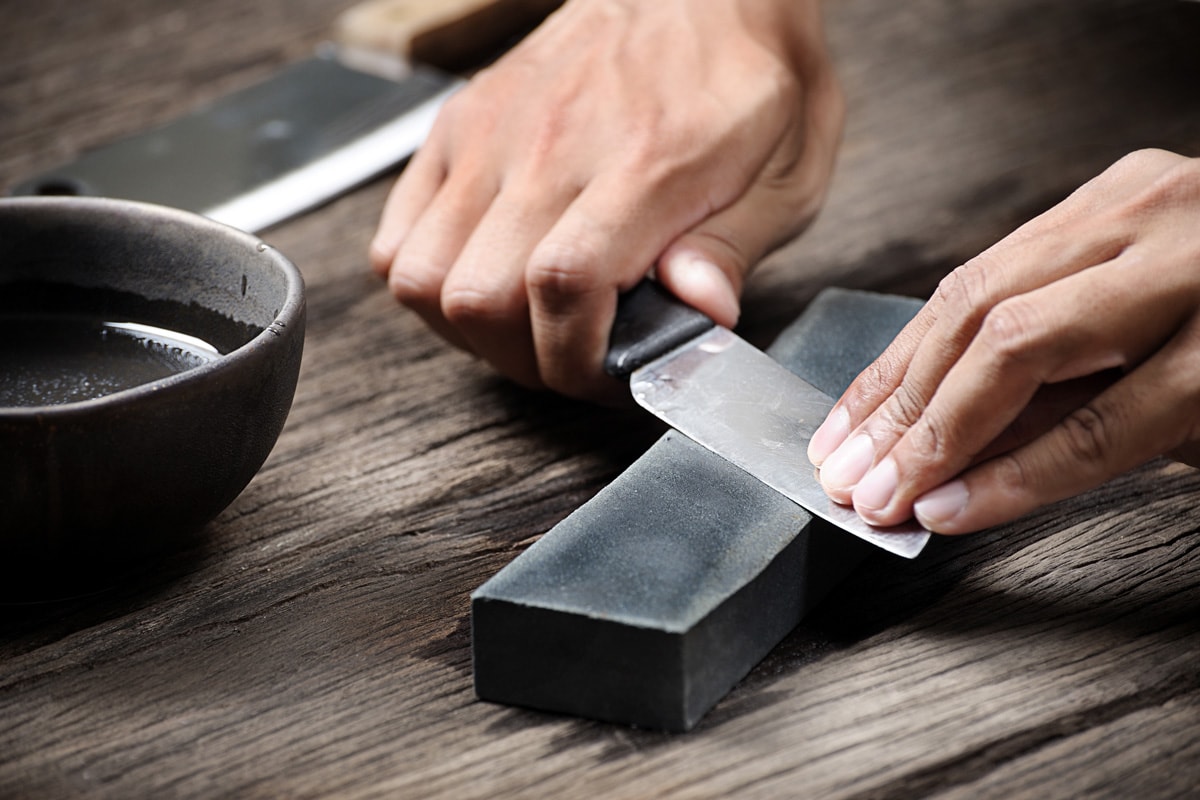
Even though your Wusthof knives should be high-quality, that won't always keep them from rusting. Usually, you can see corrosion on stainless steel with high carbon content, especially if it is wet during storage.
According to experts, placing higher-end knives into the dishwasher can lead to their demise.
For example, you might notice rust forming on a Wusthof knife after a few runs in the dishwasher, indicating the material doesn't agree with your appliance.
That said, you won't typically notice rusting on Wusthof products after a few dishwasher cleanings, but somewhat down the road. Over time, the stainless steel blades can wear down, causing rust to form.
A brand-new Wusthof knife rarely runs into corrosion-related problems, so if this happens, we recommend contacting the brand immediately.
According to this Amazon customer thread, one user has never witnessed their Wusthof knives rust, although they claim to take very special care of them.
What Should I Do If My Wusthof Knife Starts Rusting?
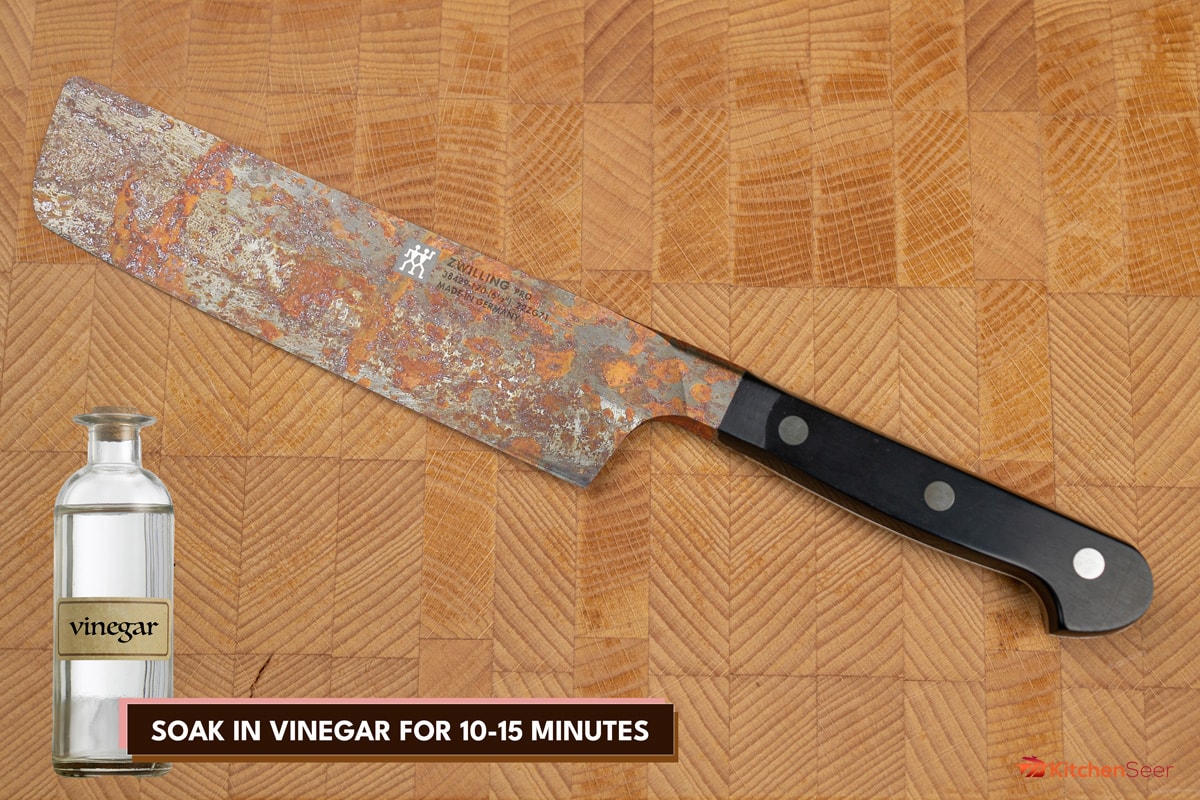
If your Wusthof knives start corroding over time, you want to give them a bit of TLC. As we mentioned above, stainless steel is the blade type in Wusthof products.
Therefore, you must ensure you're correctly washing and storing your steel knives to prevent rust spots from forming. However, if this has already happened to you: don't panic.
Many kitchen pros claim that dipping rusted knives into vinegar and letting them soak can be no match for rusting. You can pour vinegar into a somewhat deep bowl to fit the entire Wusthof blade.
From there, you want to let your knives soak in the vinegar for 10-15 minutes, followed by a wash in the sink. Don't be afraid to use a scrubber to get the rust off your knives.
For whatever reason, the vinegar's composition breaks down rusting on stainless steel. That's great news for people who do not want to throw out their knives yet!
What Causes A Wusthof Knife To Rust?
If you aren't sure what's causing your Wusthof knives to rust, this is usually because of how you clean and store them. Since the blades on your Wusthof products are stainless steel, you want to treat them like metal.
Therefore, you don't want to over-wash your Wusthof products using the dishwasher or let them sit in moisture. Metal, although resilient, does rust if it stays wet.
So, if you let your Wusthof knives air dry each time you clean them, that could be the issue.
In addition, many high-end knives don't need to be washed often or in the dishwasher. Of course, if you use them to prepare meat or fish, you need to clean them thoroughly.
In contrast, if you cut up some veggies or fruit with a Wusthof knife, you can wipe it with a clean rag and store it as usual. Again, every chef has a different cleaning procedure, but don't feel like you have to wash your Wusthof constantly.
What Are The Little Spots On My Wusthof Knife?
If you look down to see little spots on your Wusthof knife, this is likely pit corrosion. That happens when rust spots form on the blade of your knife, usually spreading over time.
Pit corrosion is the most common form of rusting on stainless steel. Since Wusthof uses stainless steel to create their cutlery, you can almost always expect pit corrosion at some point.
If you keep your Wusthof knives dry and don't throw them into the dishwasher: pit corrosion is less likely to occur. Furthermore, you can always soak your knives in vinegar if all else fails.
Luckily, pit corrosion starts small. Because of the tiny rust spots, you can clean them off easily before severe corrosion. When you notice spotting, try and clean it ASAP.
Will Wusthof Replace My Knife If It Rusts?
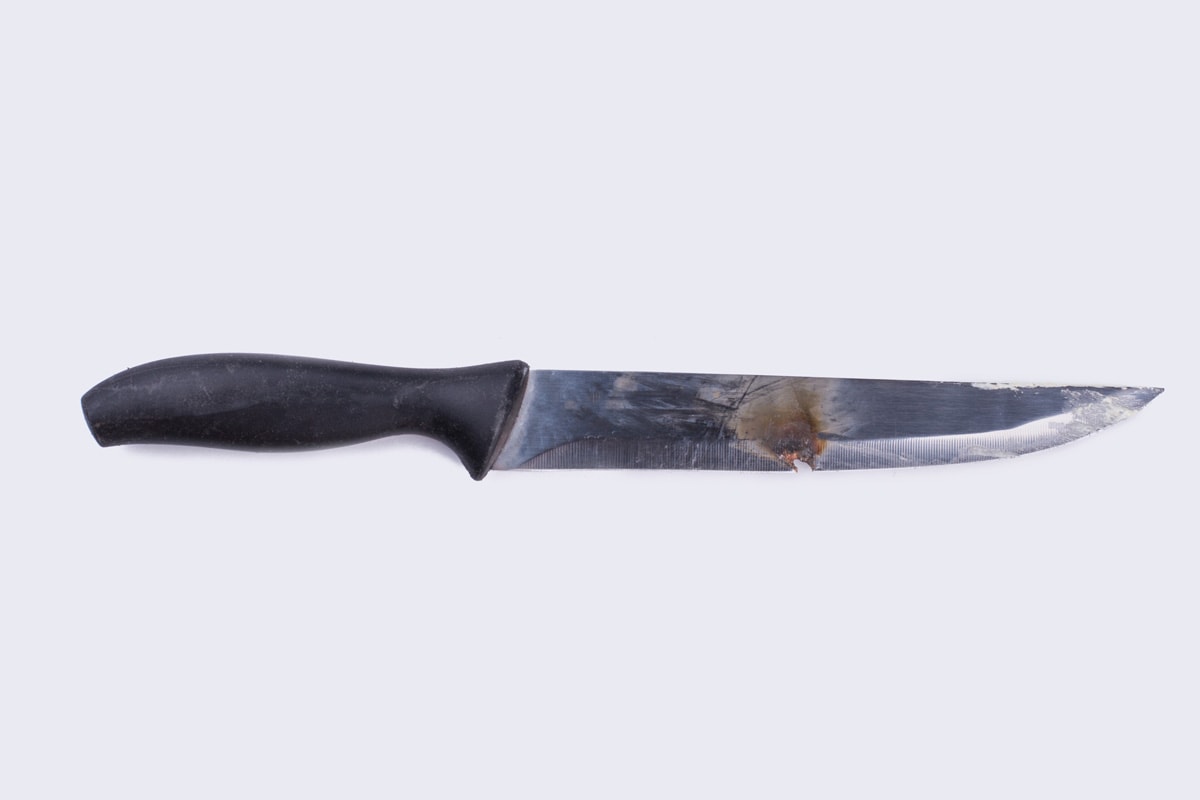
If your Wusthof knife rusts or becomes damaged, the brand's generous limited lifetime warranty should be an avenue to take. One of the main benefits of shopping at Wusthof is that the brand prides itself on a good product.
Therefore, if your product wears down faster than usual or breaks, Wusthof should be able to replace it if you reach out to them. Follow this link if you need to contact the brand or print out the return/replacement form.
Since this warranty should cover the life of your knives, you will be able to contact them within the entirety of your ownership.
Moreover, the brand claims they will ship out your new knife within 14 days of receiving the package at their warehouse. That's a pretty impressive promise.
How Long Do Wusthof Knives Typically Last?
Even though there isn't a set timeline for Wusthof knives, many users report theirs lasting more than a decade. Considering most cutlery lasts closer to five years, getting double the time with your knife is a great benefit.
According to a study done by Forbes, Wusthof knives will last longer with routine sharpening and blade straightening.
Additionally, your knives will last longer if you clean them correctly, avoiding the dishwasher and letting them sit in moisture.
One thing to remember is that over-sharpening knives can also lead to faster wear and tear. So, if you want to sharpen your Wusthof product, try and keep this at a minimum throughout its life.
WÜSTHOF 2-Stage Hand-Held Sharpener
This knife sharpener is made for Wusthof knives, gives your blades a professional-grade sharpening, features a two-step sharpener, has a rubberized base and grip, and measures 9"L x 1"W x 1"H.
Follow this link to see it on Amazon.
What Is The Best Way To Clean A Knife?
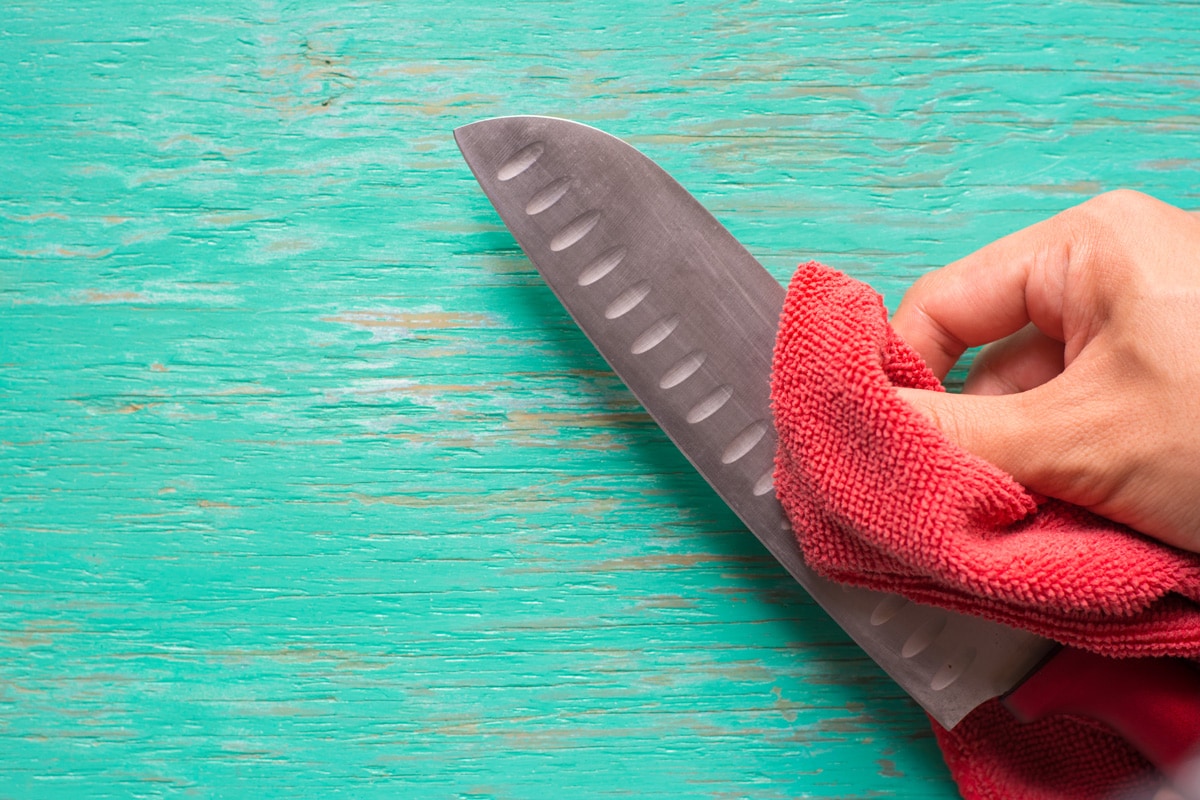
One of the best methods for cleaning knives is using soapy water and hand-washing. As we covered earlier, Wusthof knives are higher-end, so you don't want to put them in the dishwasher.
According to some chefs, you may see the best results when you rinse and wipe down a Wusthof knife immediately after using it. Rather than let your knife sit out with food on it or keep it in the sink: try and get it cleaned when you're done cutting.
Usually, the less time your knife spends in the water, the better it ages. Remember, pit corrosion is common in steel blades, which can happen with prolonged water exposure.
You should keep your Wusthof knives dry, clean, and stored somewhere they can't get too wet. You might even prefer a storage rack for your utensils to ensure they are protected.
The best policy is to keep your knife cleaning simple, with nothing more than soap and warm water.
Where Should You Store Wusthof Knives?
When it comes to storing a Wusthof knife, there are endless options. Generally, you want to stick with a Wusthof product for your blades, as you can be assured they'll fit/be compatible.
For example, the company makes a 14-Slot In-Drawer Knife Tray to hold various knives they produce. Your knife tray will also keep the Wusthof blades dry between uses, which can prevent rusting.
On top of that, plenty of non-Wusthof knife-holding products work perfectly for storage. Some experts recommend countertop knife blocks, drawers, or wall-mounted magnetic strips.
Another factor to consider for storing kitchen knives is safety. Suppose you have young kids or pets in the house. Not correctly keeping your blades can become deadly, so this is critical.
Ideally, you will have the Wusthof knives in your house high from the floor and hard to grab. Doing this is best for the knives and your loved ones.
WÜSTHOF In Drawer Knife Storage
This in-drawer knife holder is made from Wusthof, holds up to 14 knives, is wood material, can hold blades up to ten inches, measures 17 x 9 x 2 inches, and comes in a 7-slot option.
Follow this link to view it on Amazon.
Premium 17 Inch Stainless Steel Magnetic Knife Holder
This magnetic wall holder is 17 inches across, is made of stainless steel material, prevents knives from slipping, is easy to hang, doesn't rust, and has excellent customer reviews.
Follow this link to see it on Amazon.
To Finish It Up
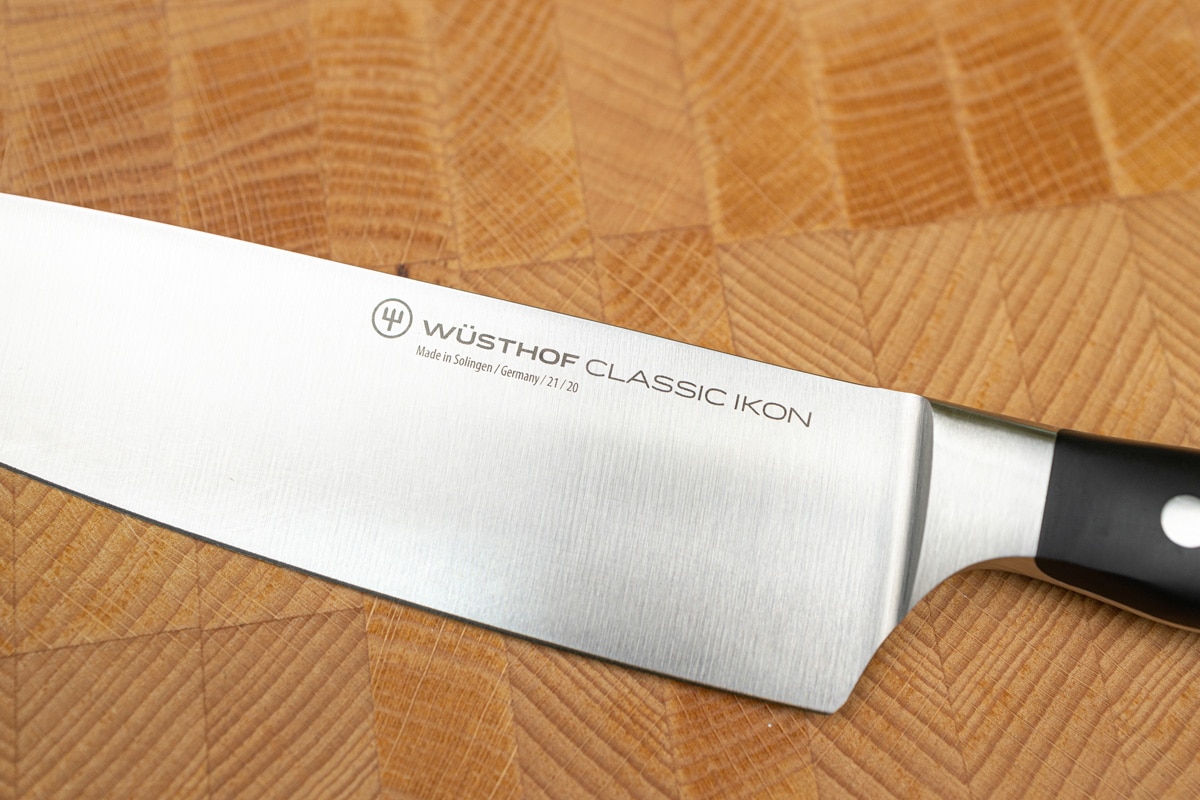
Whether you have Wusthof products or are interested in buying some, it's always good to know whether their knives will rust. Although this is a high-end brand, we found that with improper cleaning and storage, Wusthof blades can corrode.
Since these knives are made with stainless steel, there is a possibility they'll rust over time. Pit corrosion is the most common type of rusting with stainless steel blades, so try and keep them dry.
Additionally, we recommend avoiding the dishwasher for Wusthof knives but instead washing them by hand.
Made it to the end? Check out these other helpful related kitchen articles below:
Breaking Knife & Boning Knife: What Is The Difference?
Should A Boning Knife Be Flexible Or Stiff? Straight Or Curved?
What Can You Cut With A Paring Knife? [How About Meat?]




